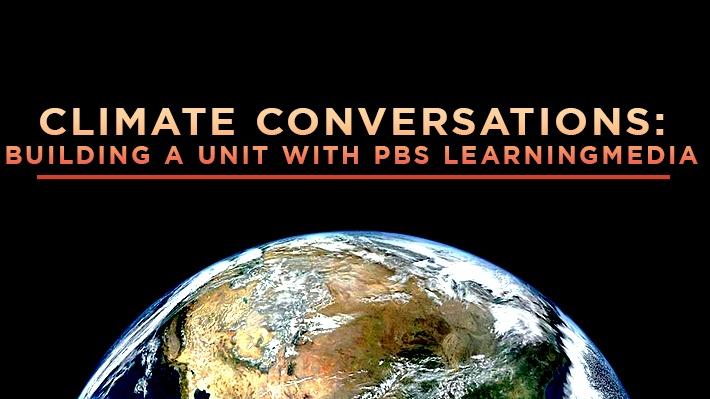In an era marked by environmental degradation and climate crisis, unity has emerged as a paramount principle articulated in the Bahá’í teachings. This discussion, “Climate Conversations: Why We Need Unity More Than Ever,” seeks to delve into the intricate relationship between Bahá’í principles and the imperative for collective action in addressing climate change. The examination is structured around several central themes, reflecting on the relevance of unity in a time when our planet’s health hangs precariously in the balance.
The first segment introduces the fundamental tenets of Bahá’í principles related to unity. At the heart of the Bahá’í Faith lies the belief in the oneness of humanity. This principle asserts that all human beings, regardless of race, creed, or origin, are interconnected, and hence must collaborate towards common goals. The Bahá’í perspective emphasizes that the challenges we face, particularly environmental challenges, are global in nature and cannot be tackled in isolation. The urgency of climate action necessitates a shared understanding and collective mobilization. Hence, the Bahá’í teachings advocate that fostering unity is not merely idealistic but rather essential for our survival.
The subsequent section discusses the role of education in nurturing unity and awareness about climate change. The Bahá’í teachings place great emphasis on the importance of education as a means to elevate consciousness about societal issues. Through the lens of educational initiatives, individuals and communities can become empowered to not only comprehend the nuances of climate science but also to appreciate the ethical dimensions of climate action. Educational platforms serve as forums for climate conversations where diverse voices can converge, share experiences, and forge unity through combined aspirations for a healthier planet.
Moving forward, it is essential to explore the concept of consultation as a method of fostering unity. The Bahá’í approach to consultation is characterized by an open, respectful dialogue aimed at reaching a consensus. In the context of climate discussions, this consultative process can engender an environment where differing perspectives are valued and synthesized into actionable strategies. Through inclusive deliberation, communities can identify local needs, mobilize resources, and delineate pragmatic climate action plans. This participatory framework not only strengthens unity but also cultivates a sense of ownership among individuals and communities towards their environmental obligations.
Furthermore, the interdependence of humanity and nature, as elucidated in the Bahá’í writings, warrants exploration. Recognizing this delicate balance is pivotal in informing our actions toward climate change. The Bahá’í teachings remind us that the well-being of humanity is inherently linked to the health of our planet. This recognition evokes a responsibility for stewardship, urging individuals and communities to engage in practices that safeguard the environment. The ethics of environmental protection must encompass not only conservation efforts but also initiatives aimed at restoring ecosystems and promoting biodiversity.
In the next section, the discourse shifts to the global nature of climate change and the collaborative efforts required to combat it. Climate change does not confer dignity or privilege; rather, it exacerbates existing inequalities. The Bahá’í principles advocate for a unified approach where affluent nations extend support to those who are disproportionately affected by climate vulnerabilities. Through international cooperation and the sharing of resources, knowledge, and technology, a collective response can address these disparities. Such initiatives could foster a renewed sense of global solidarity, ensuring that no community is left to face the brunt of climate change alone.
Moreover, effective action requires an intersectional approach that integrates social, economic, and environmental policies. The Bahá’í teachings stress the importance of holistic development, advocating for frameworks that incorporate environmental sustainability as a fundamental aspect of economic growth. This ties directly into the discourse on climate justice, underscoring the obligation to dismantle structures of inequality that often exacerbate climate-related impacts. In advocating for unity, Bahá’í principles challenge us to envision a world where the pursuit of economic prosperity coexists harmoniously with environmental conservation.
The synthesis of science and spirituality presents another vital avenue for discussion. The Bahá’í Faith underscores the congruence between scientific inquiry and spiritual truths. Understanding climate change through a scientific lens, while grounding our response in ethical and spiritual values, can inspire profound action. By recognizing the limitations of a solely materialistic worldview, individuals are called to cultivate a deeper appreciation for the sacredness of creation. This enlightening perspective beckons innovative solutions that transcend conventional approaches to environmental challenges.
Additionally, successful climate initiatives cannot overlook the importance of local action. Each community, with its unique characteristics, possesses the agency to enact change. Grassroots movements exemplify the Bahá’í commitment to unity through local action. By empowering individuals to engage in sustainable practices, communities can collectively strengthen their resilience against climate impacts. This facilitation of local engagement acts as a microcosm of the larger unified effort needed to confront global challenges. Moreover, local victories can galvanize broader movements, resulting in ripple effects that signify the power of unity.
In conclusion, the Bahá’í teachings offer profound insights into the unity required to effectively address the climate crisis. Emphasizing the interconnection of humanity, the importance of education and consultation, and the ethical responsibilities we bear towards our environment, these teachings compel us to act in solidarity. In a time of unprecedented environmental challenges, fostering unity has never been more paramount. It is within this unified framework that innovative approaches to climate action can flourish, ultimately leading to a sustainable and just future for all.
